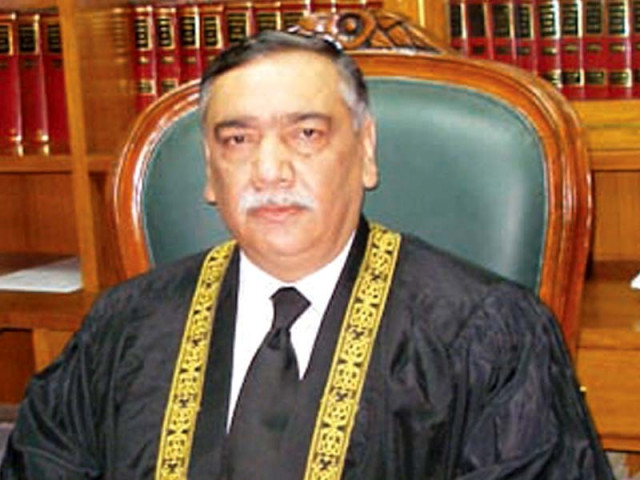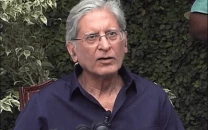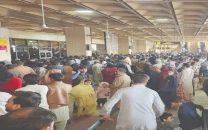CJP hints at reviewing pre-arrest bail rules
Says criminal law doesn’t allow bail before arrest

Justice Asif Saeed Khosa.
“Criminal law doesn't allow pre-arrest bail. There is a need to review the rules in this matter," he observed as a three-member bench of the apex court rejected an appeal seeking to revoke the pre-arrest bail of a robbery suspect. The suspect had obtained bail from a high court.
The chief justice noted that the first time the exemption of a pre-arrest bail was made in the country’s history was in 1949 in the Hidayatullah case.
Justice system not among govt's priorities: CJP Khosa
“A respectable person should not be implicated in any case. The question is that the court must protect the dignity of such a person,” he remarked. “The principle of pre-arrest bail must be reviewed as it’s no longer 1949. Now excuses based on ill intentions are made in every case to avail pre-arrest bail.”
He also noted that a crime was committed by one person but the names of seven people were put on the list of suspects.
In a separate case, the Supreme Court overruled the Lahore High Court’s (LHC) verdict in a customs officer’s assets beyond income case.
A three-member bench of the apex court headed by the Chief Justice Khosa heard the case and directed the LHC to decide the case after rehearing in four months.
The Chief Justice remarked that the accused, Anwar Noorani, would remain on bail till the final decision of the case by the LHC.
During the course of proceedings, National Accountability Bureau (NAB) prosecutor said Anwar’s wife owned a property worth Rs12.30 million while his son Kashif possessed assets worth Rs19.085 million.
He added that Anwar had deposited Rs170 million in a bank account and purchased a Rs25 million bond.
Govt servants doing two jobs at once is a crime: CJP
The chief justice remarked that prize bonds were an effective way to turn black money into white.
He asked Anwar how he had deposited millions of rupees in his bank accounts. The customs officer replied that he was involved in a prize bond business.
The chief justice inquired as to how he could run a business while being a government officer.
Anwar said the government and the State Bank of Pakistan did not bar a government employee from running a prize bond business.
The chief justice observed that it seemed that the high court could not understand the case. Later, the court directed the LHC to rehear the case and decide it in four months.
*With additional input from APP



















COMMENTS
Comments are moderated and generally will be posted if they are on-topic and not abusive.
For more information, please see our Comments FAQ